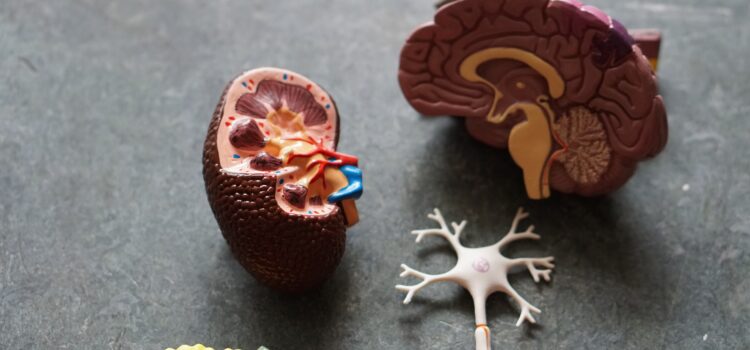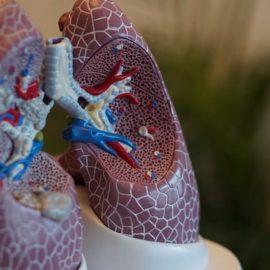

This article is an excerpt from the Shortform book guide to "How Not to Die" by Michael Greger. Shortform has the world's best summaries and analyses of books you should be reading.
Like this article? Sign up for a free trial here .
What causes Alzheimer’s disease? Can Alzheimer’s be cured? Is there a way to prevent it?
The immediate proximal cause of Alzheimer’s Disease is amyloid plaques in the brain—the plaques damage neurons and neuronal networks. A total cure for people with Alzheimer’s is likely impossible, given that the neuron networks have been damaged, but prevention may be possible.
This article takes a look at how to prevent Alzheimer’s disease, supported by research.
Alzheimer’s Disease: Causes and Risk Factors
The root cause of Alzheimer’s could be vascular in nature.
- Atherosclerosis is associated with Alzheimer’s and lost brain function
- Cholesterol may help seed amyloid plaques. Autopsies show that brains of Alzheimer’s patients have significantly more cholesterol buildup than brains without Alzheimer’s.
While genetics has been implicated in, it’s not the full story. The environment affects risk of Alzheimer’s too.
- Migration studies show that Japanese men in the US have dramatically higher Alzheimer’s rates than native Japanese people. Similarly, African-Americans show higher risk than Africans in Nigeria.
- The closest link to explain this discrepancy is animal fat consumption. Non-meat eaters cut their risk of dementia by half.
- A mutated ApoE4 gene is implicated for increasing Alzheimer’s risk dramatically—a person homozygous for this mutated gene increases risk by 9x; a heterozygous person has 3x the risk. What does the protein ApoE4 do? It’s a major cholesterol carrier in the brain.
- For people with homozygous mutations, controlling blood pressure and cholesterol cuts risk of Alzheimer’s from 9x to 2x.
How to Prevent Alzheimer’s Disease
Here are some dietary guidelines for how to prevent Alzheimer’s disease.
A diet with less saturated fat relative to unsaturated fat is protective against Alzheimer’s. In a population study, people with the highest level of saturated fat intake had a 60% greater chance of cognitive deterioration.
Antioxidants from the diet may cross the blood-brain barrier and protect against oxidative damage in the brain, inhibiting the formation of the plaques that cause Alzheimer’s.
- Women who ate one serving of blueberries and two servings of strawberries a week had slower rates of cognitive decline, by as much as 2.5 years.
- People who drank fruit and vegetable juices regularly had 76% lower risk of Alzheimer’s.
- This effect may be mainly caused by polyphenols—concord grapes and cranberries are especially rich in these compounds.
Saffron
- Saffron was better than placebo in improving cognitive function among patients with mild dementia.
- In a double-blind study, it was as effective as the drug donepezil (Aricept), a drug used to enhance cognition for Alzheimer’s patients.
Eat less meat to reduce the level of advanced glycation end products (AGEs).
- AGEs are formed by dry-heating fat-rich and protein-rich foods. Chicken, bacon, and hot dogs are the worst offenders. Baking, broiling, and grilling such meats is far worse than boiling or steaming.
- AGes accelerate aging by cross-linking proteins, which causes tissue stiffness, oxidative stress, and inflammation.
- People with higher AGEs in their diet show faster loss of cognitive function.
Exercise
- Aerobic exercise reversed age-related shrinkage in brain and improved memory performance. There was no effect in the group that just stretched and did non-aerobic strength-training.

———End of Preview———
Like what you just read? Read the rest of the world's best book summary and analysis of Michael Greger's "How Not to Die" at Shortform .
Here's what you'll find in our full How Not to Die summary :
- The health benefits of a plant-based, whole-food diet
- How to reduce your risk of developing the most common diseases that can kill you
- The 12 foods you should eat daily to maximize health benefits






